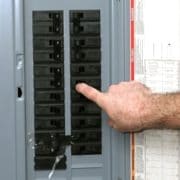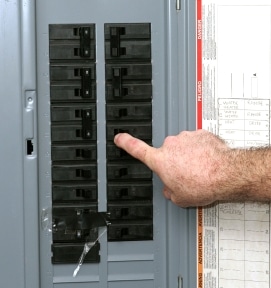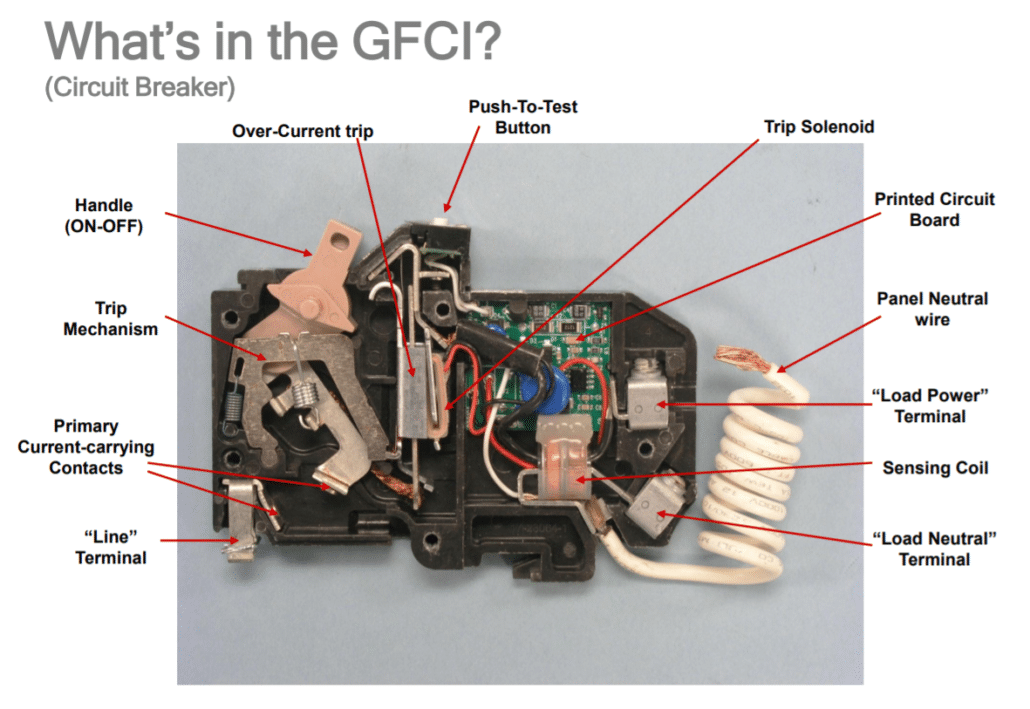What is a Circuit Breaker? What are the Benefits of a Circuit Breaker Panel?
This is the second in a series of blogs which will culminate in identifying some potential circumstances under which you might consider upgrading from a fuse panel to a circuit breaker panel. In this blog I review circuit breakers and the benefits of a circuit breaker panel.
Circuit Breaker Panel
What is a Circuit Breaker?
A circuit breaker is another type of overcurrent protection device (OCPD). There are multiple types, but common circuit breaker types include:
- Magnetic – when the current exceeds the allowed amperage for a circuit, the circuit is opened via electromagnetic force
- Thermal – when an overcurrent exists, the excessive heat causes a bi-metallic strip to bend and opens the circuit
- Hybrid – uses a combination of heat and electromagnetism to open the circuit
- GFCI – Ground Fault Circuit Interrupters measures the electrical current to and from a device (receptacle, switch, or appliance). The current to/from must be identical within 4 – 6 milliamps or the GCI will open the switching contacts
- AFCI – Arc Fault Circuit Interrupters – detects a potentially dangerous electric arc and opens the circuit
- CAFCI – Combination Arc Fault Circuit Interrupters – detects ground faults, short circuits, and arc faults and breaks the circuit
Picture of GFCI Circuit Breaker
Benefits of a Circuit Breaker Panel
It’s important to know the advantages of a circuit breaker panel over a fuse panel. Circuit breaker panels provide the following benefits:
- They can be expanded to add new circuits
- They more safely incorporate both 120- and 240-volt circuits
- When a circuit breaker trips, it can be reset vs. fuses which must be replaced when they are overloaded and “blow”
For many years, a typical circuit breaker panel had 100-amp service. Newer homes have circuit breaker panels with 200-amp service which can support more branch circuits and provide twice the electrical capacity of a 100-amp service. Knowing a bit about the history of electrical service panels will be useful in my next blog when I talk about when to consider a proactive upgrade from a fuse panel to a circuit breaker panel.




Leave a Reply
Want to join the discussion?Feel free to contribute!